CONTINENTAL UNITY OP-ED
Battle for Africa’s regional integration will be won or lost in the cities
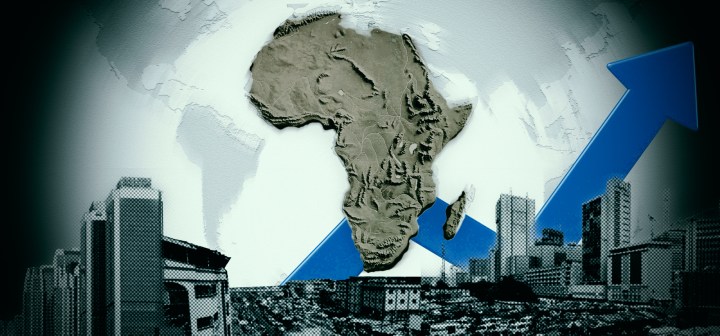
African cities are the most rapidly growing cities in the world, with an increasing population of about 500 million. Between 2001 and 2020, rapid urbanisation contributed 29% of the total average annual per capita GDP growth across Africa.
In the past decade, continental integration has witnessed some developments that, if well managed, can form a good basis for ensuring the desired unity needed for continental development.
The adoption of the seven-point African Union (AU) Agenda 2063 in 2015; the decision to self-finance the AU through a 0.2% levy on eligible imports into member states in 2016; the decision to reduce the number of AU Commission portfolios from eight to six (with strict emphasis on gender equality and representation); the adoption and entry into force of the much-touted African Continental Free Trade Area (AfCFTA) Agreement in 2018 (47 out of 55 member states have now ratified it); and the adoption of the Protocol to the Treaty Establishing the African Economic Community on the Free Movement of Persons, Right of Residence and Right of Establishment (which has yet to come into force) in 2018, are some of the processes that speak to the will to move in a different direction.
However, these developments remain in the realm of intergovernmental interactions, with little attention paid to the role of civil society and other influential subnational entities in not only driving these efforts, but also providing the much-needed momentum to sustain the process.
Among these subnational entities are Africa’s rapidly growing, complex and complicated cities. To paraphrase former United Nations secretary-general Ban Ki-Moon’s famous assertion about cities in the context of sustainable development, the struggle for meaningful regional integration in Africa will be won or lost in the cities.
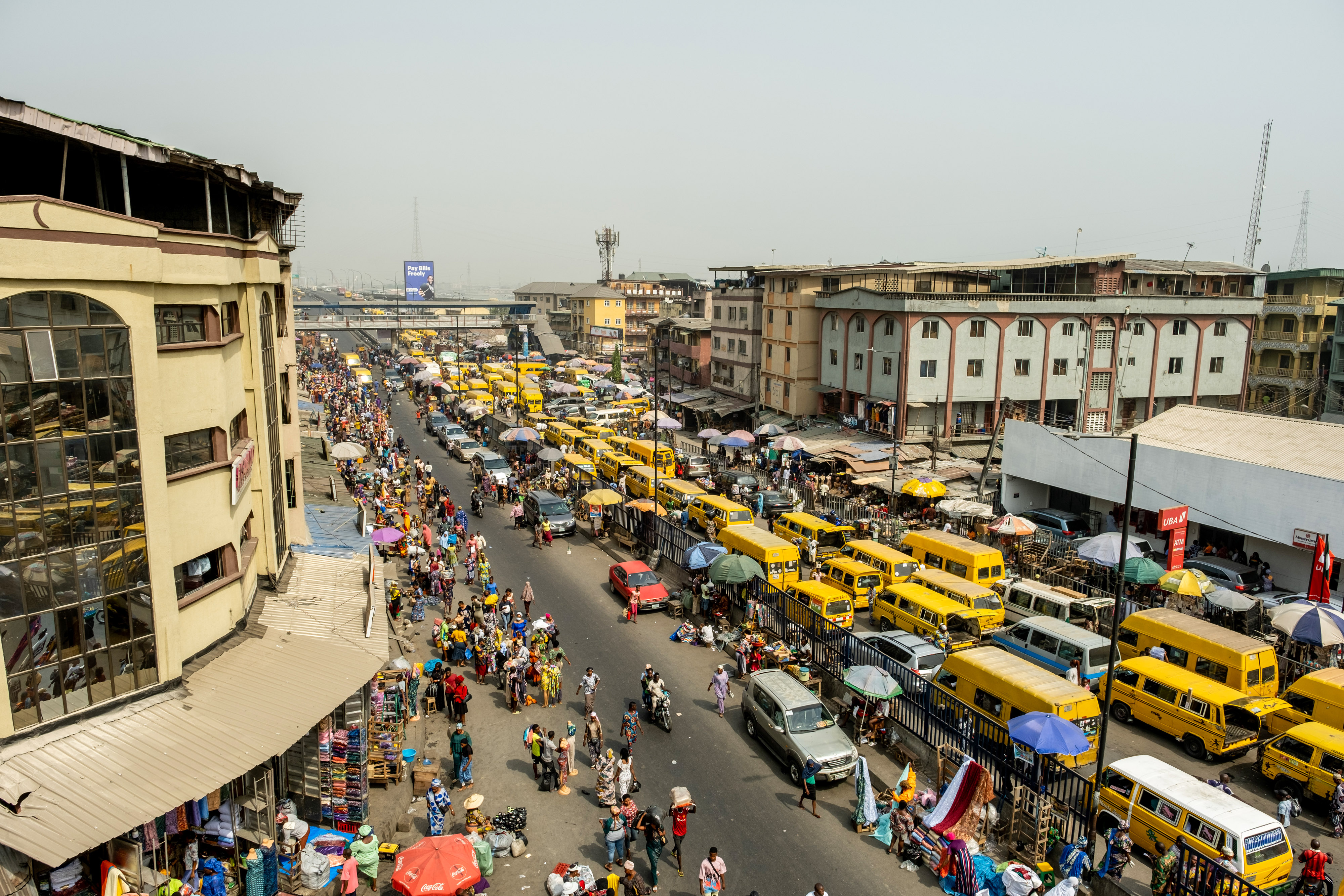
Taxi vans in heavy traffic on Nnamdi Azikwe Street near the Idumota market in Lagos, Nigeria, on 6 January 2022. (Photo: Adetona Omokanye / Bloomberg via Getty Images)
For centuries, African cities have played significant roles in shaping both the imagination and practicalities of ensuring national and transnational development efforts. African cities are the most rapidly growing cities in the world, with an increasing population of about 500 million. Between 2001 and 2020, rapid urbanisation contributed 29% of the total average annual per capita GDP growth across Africa.
Beyond mere rhetoric, there has been little effort to place African cities at the centre of subregional and continental integration efforts.
In addition, African cities will benefit from increased intra-African trade in the production of traded goods and reduced import costs of traded and manufactured goods for their growing populations.
Currently, Africa has three megacities (those with a population of at least 10 million) – Kinshasa, Lagos and Cairo – and it is forecast that between 2030 and 2050, Nairobi, Johannesburg, Khartoum, Luanda and Dar es Salaam will achieve this status.
If cities like Johannesburg and Lagos were independent countries, they would be among the top 10 economies in Africa. As Daniel Hoornweg points out: “Africa is unquestionably the continent that will drive the future of urbanisation.”
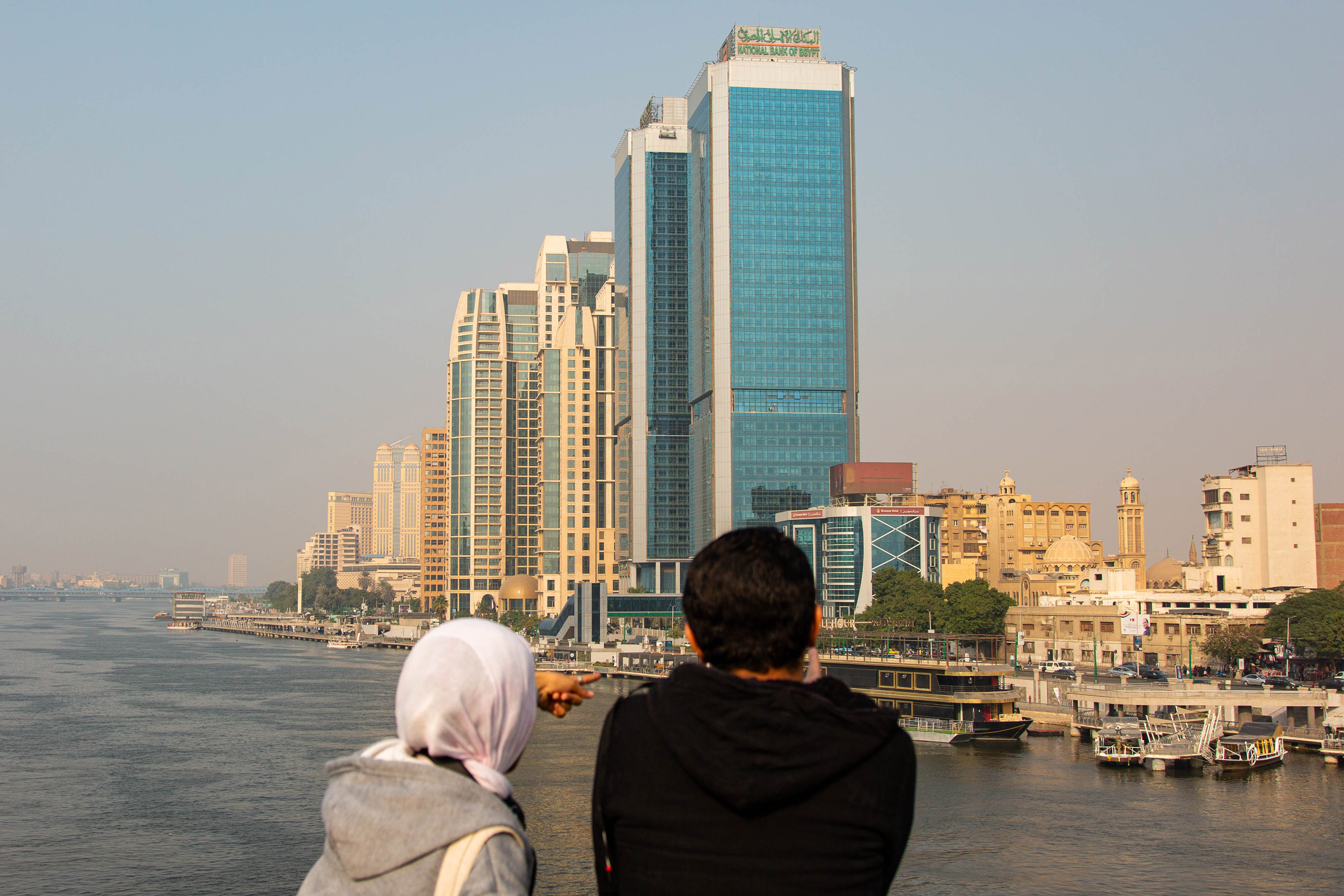
Residents on the 15 May Bridge look out towards commercial high-rise buildings in Cairo, Egypt, on 4 December 2023. (Photo: Islam Safwat / Bloomberg via Getty Images)
Beyond mere rhetoric, there has been little effort to place African cities at the centre of subregional and continental integration efforts. Unlike in Europe and Latin America, where cities have formally recognised platforms to contribute directly to regional integration efforts, there is no such thing at the AU level.
The United Cities and Local Governments of Africa (UCLG Africa), an organisation of 44 national associations of local governments and 2,000 cities across Africa that aims to place local governance issues in the context of continental integration and development, is neither a recognised structure of the AU nor a critical actor within the broader continental integration process.
For example, in the AU Agenda 2063, cities are mentioned only twice, as hubs of economic and cultural activities and transport networks. Other documents, such as the AfCFTA Agreement (and its related documents) and even the broader AU institutional reform process, are silent on the meaningful inclusion of cities as key actors in deepening regional integration efforts.
Even the only AU instrument dealing with local governments, the African Charter on the Values and Principles of Decentralisation, Local Governance and Local Development does not make the establishment of a forum of local governments at the AU level mandatory. Apart from a lukewarm reference to the role of the AU Commission in supporting the establishment of a consultative forum for collective action by local governments, no concrete process is highlighted.
It is important to experiment with frameworks that bring African megacities and metropolises together to share problems and ideas on how to advance the integration agenda.
These gaps have ensured that there is very little meaningful city-to-city interaction on the continent, with African cities seeing more value in either being part of extracontinental city-to-city networks or global structures and networks.
There are several reasons that cities are excluded from the regional integration process in Africa. One is that the continental integration process remains largely a matter for national governments. The articulation and implementation of regional integration objectives are largely left to national governments, with little or no consideration of the input of civil society and subnational governments.
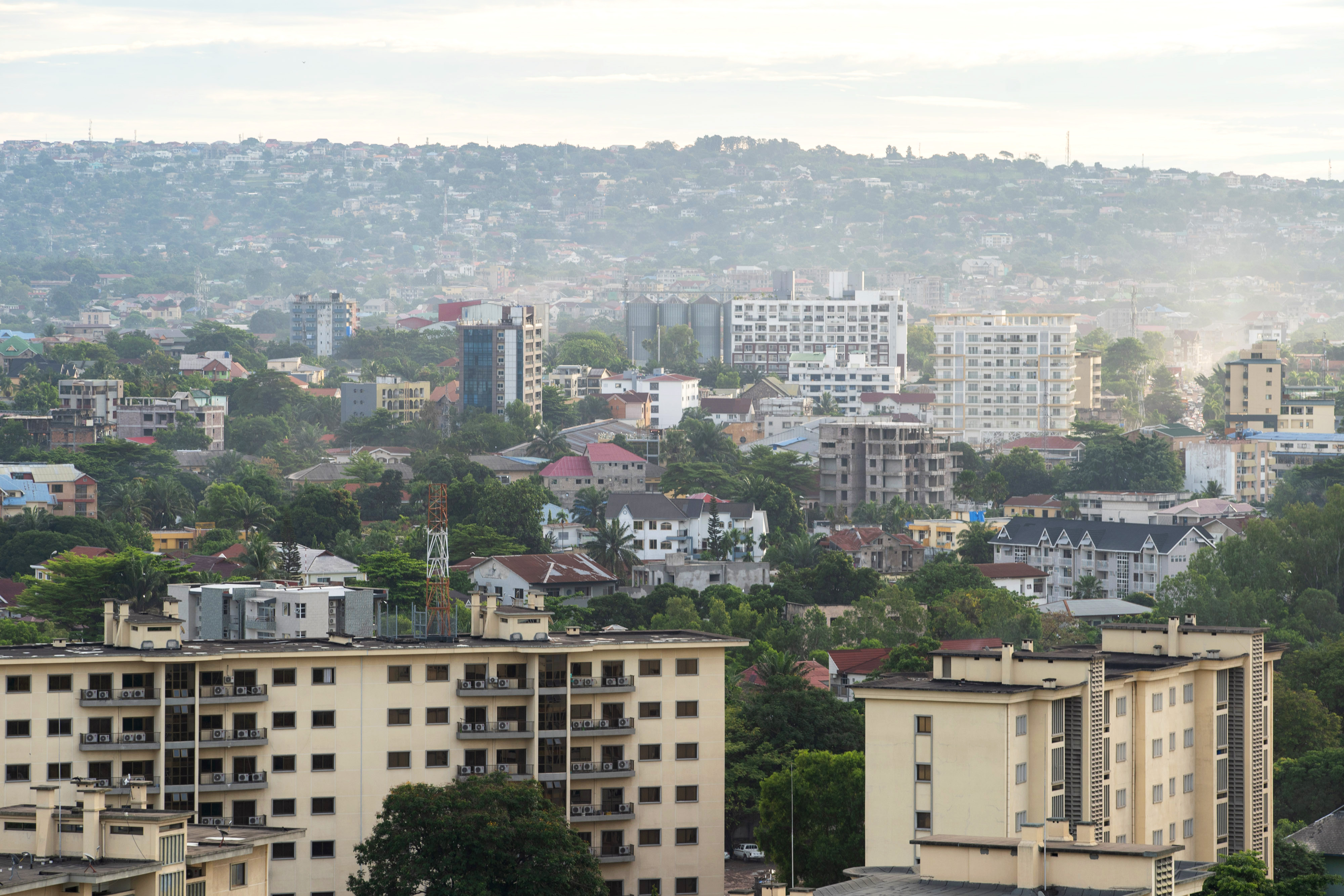
Buildings on the skyline in the suburbs of Kinshasa, Democratic Republic of Congo, on 25 November 2021. (Photo: Lisa Murray / Bloomberg via Getty Images)
The second is that subnational governments are burdened by the quadruple deficiencies of weak administration, crippling interference from national (and provincial) governments, urbanisation problems and local (and even national) political actors uninterested in the pan-African integration agenda.
These shortcomings have cumulatively ensured that cities and local government actors remain disempowered and focused on the politics of navigating the often-problematic demands of local rather than transnational politics.
Finally, transnational instruments do not provide a realistic framework for the creation of sustainable platforms through which cities and local governments can participate in the continental integration process.
A number of issues need to be considered.
The first is to give African cities a seat at the table of continental integration forums and processes through a formally recognised platform. UCLG Africa already provides a relevant format that can be enhanced and adapted to advance the continental integration agenda.
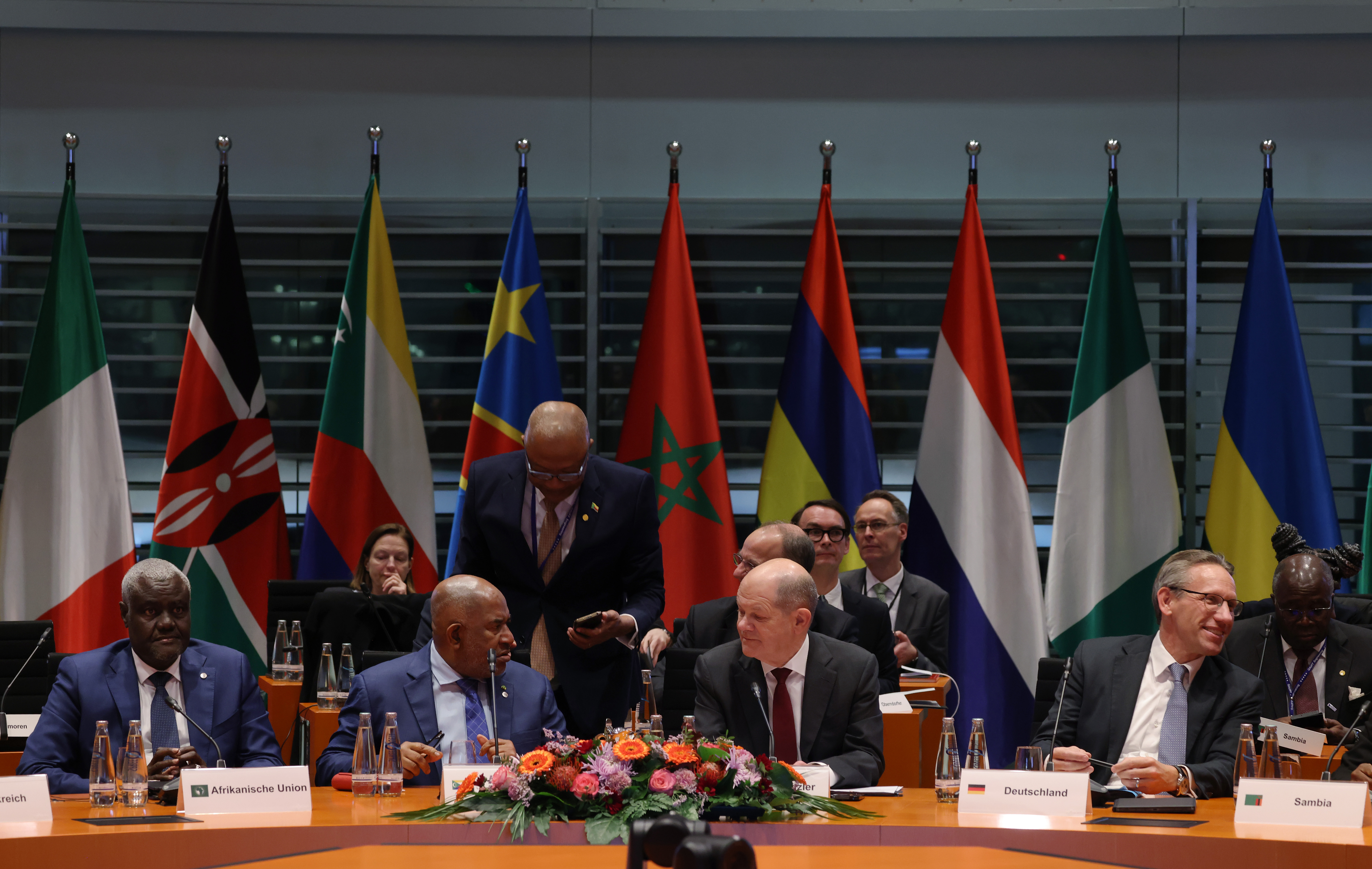
German Chancellor Olaf Scholz (second from right) and Assoumani Azali (second from left), chairperson of the African Union, and Moussa Faki Mahamat (left), chairperson of the African Union Commission, at the second session of the G20 Compact With Africa conference at the Chancellery in Berlin on 20 November 2023. Compact With Africa is a German initiative to encourage investment in participating African countries. (Photo: Sean Gallup / Getty Images)
Second, it is important to experiment with frameworks that bring African megacities and metropolises together to share problems and ideas on how to advance the integration agenda.
For example, such frameworks could be integrated into the implementation agenda of the AfCFTA, Agenda 2063 and the Free Movement of Persons Protocol. Such a platform could also be encouraged to set up subcommittees of business, young people, women and cultural stakeholders to discuss the implementation of the regional integration agenda.
Read more in Daily Maverick: To foster African science, breaking barriers to intracontinental mobility is paramount
Last, it is important to pay attention to the low-hanging fruits. Admittedly, many of the problems of local government will take a long time to solve, but local actors can be encouraged to exploit and build on the comparative advantages of their cities.
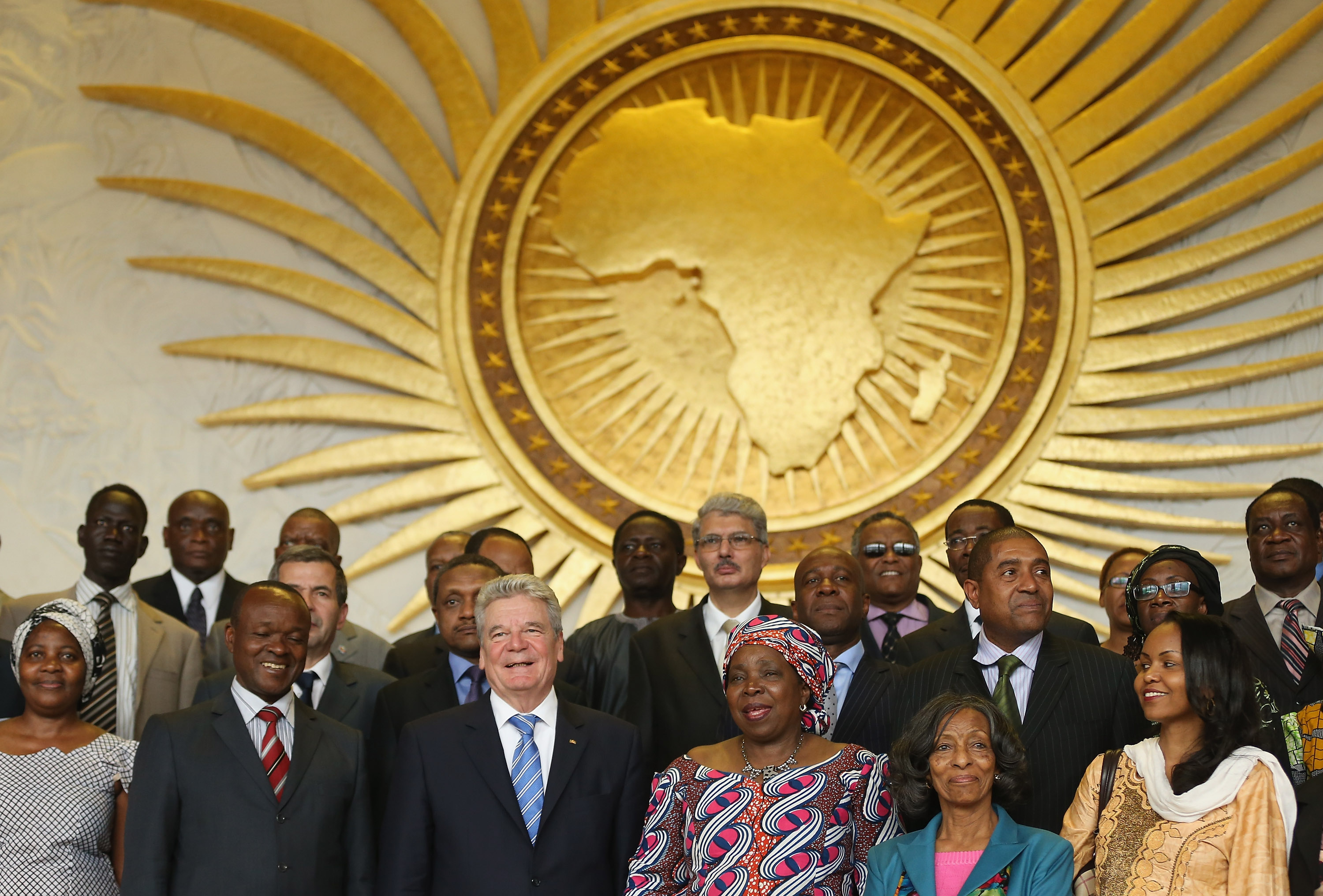
German President Joachim Gauck with delegates of the African Union, including chairperson Nkosazana Dlamini Zuma, after he spoke on the occasion of the upcoming 50th anniversary of the Organisation of African Unity, the predecessor to the AU, on the second day of his official visit in Addis Ababa, Ethiopia, on 18 March 2013. (Photo: Sean Gallup / Getty Images)
For example, if a city has a relatively advanced research and fintech hub, subnational governments could reach out to these non-state actors to help design public-private sector programmes that both improve the local economy and contribute to the regional integration process. This can also be elevated to a city-to-city partnership, where willing participants connect actors from both sides to develop a cross-border cooperation agenda.
The same can be said of relying on cultural actors such as musicians, artists and performers to help shape and spread the “gospel” of continental unity and development. DM
Babátúndé Fágbàyíbọ is a professor of law at the University of Pretoria. He is also the 2023-24 Visiting Senior Researcher, Africa Scholar Programme at the Nordic Africa Institute, Uppsala, Sweden.




Comments - Please login in order to comment.